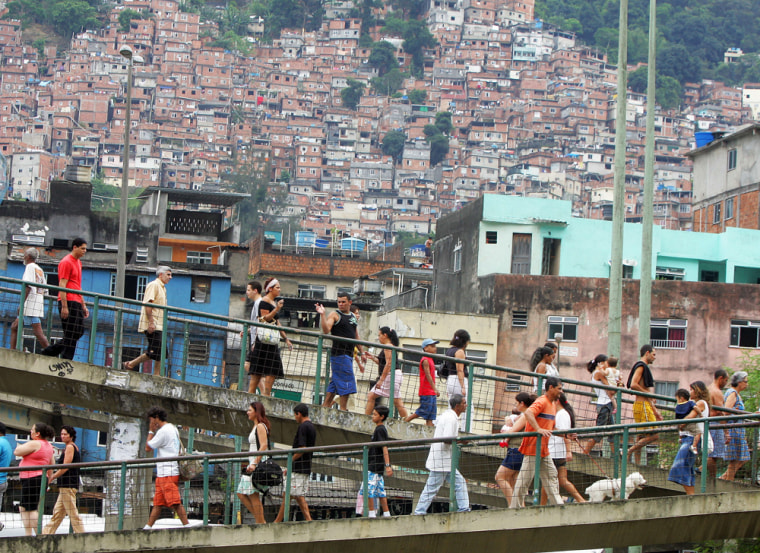Brazilians soundly rejected a proposal to ban the sale of guns in a national referendum Sunday, striking down the bid to stem one of the world’s highest firearm murder rates following a campaign that drew parallels to the U.S. gun control debate.
Brazil has 100 million fewer citizens than the United States, but a staggering 25 percent more gun deaths at nearly 40,000 a year. While supporters argued that gun control was the best way to staunch the violence, opponents played on Brazilians’ fears that the police can’t protect them.
“I don’t like people walking around armed on the street. But since all the bandits have guns, you need to have a gun at home,” said taxi driver Mohammed Osei, who voted against the ban.
With more than 92 percent of the votes counted, 64 percent of Brazilians were opposed to the ban, while 36 percent backed it, said election officials, giving the ’no’ position an insurmountable lead.
The proposal would have prohibited the sale of firearms and ammunition except for police, the military, some security guards, gun collectors and sports shooters. It would complement a 2003 disarmament law that sharply restricts who can legally purchase firearms and carry guns in the street.
That law, coupled with a government-sponsored gun buyback program, has reduced deaths from firearms by about 8 percent this year, the Health Ministry said.
Support for ban waned as vote neared
But the referendum backfired for proponents. Earlier this year, support for the ban was running as high as 80 percent. But in the weeks before the referendum, both sides were granted free time to present their cases on prime-time TV, and the pro-gun lobby began to grow.
Analysts said the pro-gun lobby benefited from equal time on television in the final weeks of the campaign and that they cannily cashed in on Brazilian skepticism of the police.
“They ask the question: ’Do you feel protected and do you think the government is protecting you?’ and the answer is a violent no,” said political scientist David Fleischer of the University of Brasilia.
The combination of Brazil’s high gun-death rate and the nature of the debate over the right to gun ownership has drawn parallels to the gun debate in the United States.
“The whole campaign (against the ban) was imported from the United States. They just translated a lot of material from the NRA,” said Jessica Galeria, a Californian who researches gun violence with the Viva Rio think tank, referring to the National Rifle Association. “Now, a lot of Brazilians are insisting on their right to bear arms, they don’t even have a pseudo right to bear arms. It’s not in their Constitution.”
NRA hails vote as a ‘victory for freedom’
NRA public affairs director Andrew Arulanandam called the proposal’s defeat “a victory for freedom.”
“It’s a stunning defeat for the global gun control movement. They poured millions of dollars and millions more man hours trying to enact this gun ban and they failed. The aim of this gun ban movement was to use Brazil as the rallying point to enact gun bans in the United States. We’re happy they were defeated,” he said.
Some Brazilians said they resented the referendum because they feel the government is ducking its responsibility to keep the peace.
“It’s immoral for the government to have this vote,” said Pedro Ricardo, an army officer in Sao Paulo. “They’re putting the responsibility on us, but ... the way to cut down on violence is to combat the drug trade and patrol our borders.”
Supporters maintain the referendum is the only way to make Brazil safer.
“We have to change the violence in this country,” said Paulo Leite, an engineer from the upscale Ipanema beach district.
About 39,000 people in Brazil are killed by guns each year, compared to about 30,000 people in the United States, although the U.S. population is about 100 million more than Brazil’s, according to the U.S. Centers for Disease Control and Prevention.
According to UNESCO, Brazil ranks second in deaths by guns, with 21.72 per 100,000 people a year. Venezuela has 34.3 gun deaths per 100,000.
But in shantytowns like Vila do Joao, the rate rises to around 150 per 100,000. And for males between 17 and 24, the death rate is closer to 250 per 100,000.
